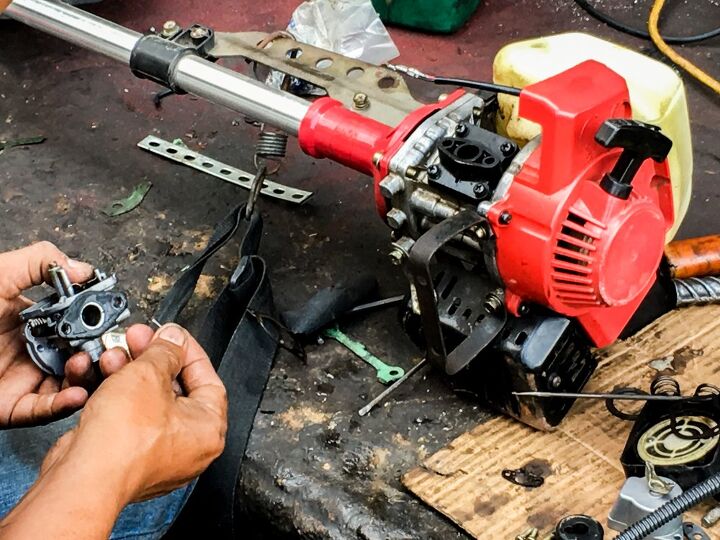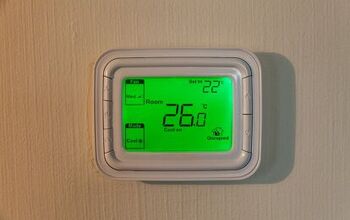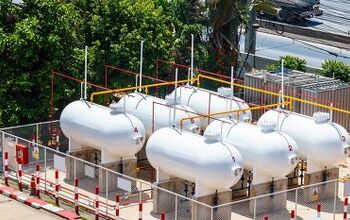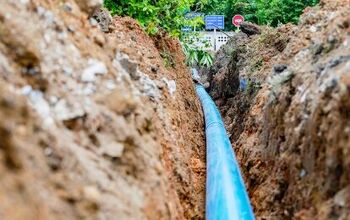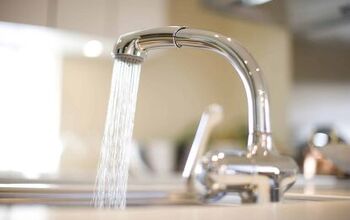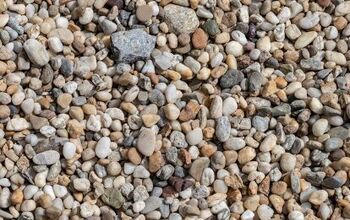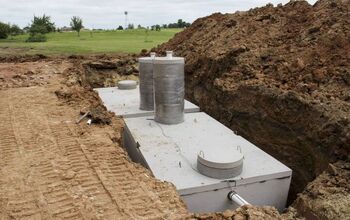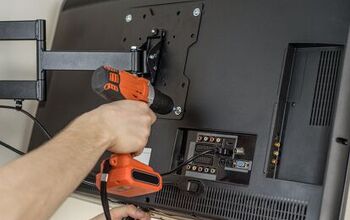Kohler Vs. Kawasaki Engines: Which One Is Better?

If you mow your grass, use a pressure washer, or similar DIY tasks, then you need hardworking, reliable machines. Your equipment’s usefulness is only as good as the engine, and Kohler and Kawasaki are some of the best.
Many popular mowers, pressure washers, and other devices, like John Deere and Craftsman, use Kawasaki and Kohler engines. Both engines are an excellent choice with many strong qualities, although Kohler tends to have better support service. Alternatively, Kawasaki tends to take the lead on consistent quality over the years.
No matter what your reason for needing a new engine, Kawasaki and Kohler are both viable options. However, take a closer look at both before deciding which is the best choice for you.
Related Content: Kohler vs. Briggs Mower Engines | Lawnmower Brands To Avoid
Do You Need a Mower Repair Service?
Get free, zero-commitment quotes from pro contractors near you.

Things to Consider When Choosing a Small Engine
Before jumping into purchasing the first engine you see, consider all of the pros and cons of each. Several factors are essential when choosing a lawnmower, pressure washer, or any other machine using a small engine. You’ll want to look at things like reliability, fuel-efficiency, cost, and expected lifespan, among others, before making your final choice.
Power: Kawasaki vs. Kohler
Kawasaki is known for its Critical Power engines that follow SAE J2723 standards. This standard ensures that engines provide users with at least 98% of their rated horsepower. A standard of SAE J2723 Critical Power provides Kawasaki engine users with a more precise measurement of horsepower.
To ensure Kawasaki Critical Power engines are up to snuff, they go through rigorous testing done by TÜV Rheinland Group. Kawasaki utilizes a third-party testing group to prevent biases as well as guarantee precision in ratings. During testing, equipment and calculations are set to the SAE J2723 rating; tests are run, then the group assigns horsepower ratings.
Kawasaki’s Critical Power engines have more precise testing and ratings than other engines. In Kawasaki FX engines, horsepower ranges from 15.5 hp to 38.5 hp.
Comparatively, Kohler engines are not as well known for the accuracy of their horsepower ratings. Kohler’s gasoline engines have a wide variety of engines, ranging in horsepower from 3hp to 38hp.
The Winner: Kawasaki. Its engines are better known for the accuracy and precision of their horsepower.
Comparison Video: Kawasaki & Kohler Engine Teardown
Reliability: Kawasaki vs. Kohler
In terms of reliability, Kawasaki is known for the precision of its horsepower ratings. When purchasing a device with a Kawasaki engine, you get the horsepower you expect. Users cite experiencing fewer problems with Kawasaki engines compared to other models.
Kohler engines are reasonably reliable, depending on the model you purchase. Certain models have had issues with oil leakage, but this is easily fixable. The new Courage model has a part that has a tendency to peter out in 50-100 hours. Kohler engines also have issues with cranking but not starting.
The Winner: Kawasaki. Users cite fewer problems with Kawasaki engines than Kohler engines.
Efficiency: Kawasaki vs. Kohler
Kohler offers users a variety of fuel options for its engines. Although some of its engines use gasoline, its most fuel-efficient models run on propane without a carburetor. Kohler’s Command PRO® EFI engine can save you up to $600 per year on fuel.
Some of Kawasaki’s lawnmower engines also forgo the use of a carburetor and utilize EFI instead. These engines allow users to speed up the pace and often feature high and precise cutting power. However, people describe Kawasaki as using more fuel than its counterparts.
The Winner: Kohler. Although both utilize EFI technology, Kohler has a reputation for using less fuel than competitors.
Brands That Use Kohler and Kawasaki Engines
You can find Kohler engines in a wide variety of brands, including Dixon, Toro, Cub Cadet, Ariens, and Husqvarna. You’ll also find Kohler engines in Gravely, Dixie Chopper, Craftsman, Westinghouse, and Simpson power equipment.
Kawasaki engines are not as widely used as Kohler engines. You can find them in brands like Ariens, Gravely-Pro, Snapper-Pro, Dixie Chopper, Toro, Husqvarna, Cub Cadet, and Swisher.
The Winner: Kohler. A broader range of companies uses its engines.
Maintenance: Kawasaki vs. Kohler
Kawasaki recommends you perform regular maintenance on its engines. Follow your user manual’s instructions to maintain the air filter, oil oil filter, and cooling system. Kawasaki engines use open-loop control, which requires less maintenance due to fewer parts.
Kohler also says to maximize your engine’s life perform regular maintenance as outlined in your product’s user manual. Perform routine maintenance on the air filter, oil and oil filter, and cooling system.
The Winner: Kawasaki due to its open-loop control system. This has fewer parts to maintain than Kohler’s closed-loop counterparts.
Lifespan: Kawasaki vs. Kohler
The lifespan of any engine is dependent on how well you maintain it. Motors will last longer if they are well taken care of and if you use them regularly. However, if you use your engine daily, it will experience more wear and tear and likely peter out earlier.
If well maintained, you can get almost 3,000 hours of use out of a lawnmower using a Kawasaki engine. Some users have maintained their Kawasaki engines well enough that they’ve lasted 15 years.
The jury is out on exactly how long a Kohler engine will last you. Some of its air-cooled engines will last about 2,000 hours, if that. Other users claim their Kohler engines have been long-lasting, going for nearly 4,000 hours with no problem.
The Winner: It’s a tie. Depending on how well you take care of your machinery, these engines can last for a long time.
Warranty: Kawasaki vs. Kohler
A 36-month limited warranty accompanies Kawasaki engines. If any part of the engine fails during this period, the company will cover repairs or replacement. However, an official Kawasaki engine dealer must do the repair for it to be free of charge.
Kawasaki’s warranty does not cover parts broken due to misuse, accidents, or poor maintenance. You can also purchase Kawasaki Protection Plus for additional coverage on a Kawasaki product.
The warranty on Kohler engines depends on the type of use intended for the product. The warranty period for residential use is typically longer than the warranty period for commercial or rental use.
Kohler’s residential warranties vary from one year to five years. Its commercial and rental use warranties range from 90 days to 3 years. The length of Kohler’s warranties is also dependent on what type of engine you purchase.
The Winner: Kawasaki, for a flat three-year warranty. Depending on what Kohler product you buy, you may get a more extended warranty.
Customer Service: Kawasaki vs. Kohler
Both brands have relatively similar customer service availability. Kohler’s customer service is available every Monday to Friday from 8 am to 5 pm. Kohler is known for its exceptional customer support service, being a bit friendlier than competing brands over the phone.
Kawasaki is available at the same time via phone as well as email. However, it will only respond to emails concerning repairs and warranties.
The Winner: Kohler. It’s known for better and friendlier customer service.
Cost: Kawasaki vs. Kohler
Kawasaki small engines for mowers range in price from $360 to $3,000. Kohler small engines range in price from $219 to $3,450.
The Winner: Kohler. You’ll find mower engines for about $140 less than Kawasaki engines. However, the two are very close in price, so weigh the features of each engine before purchasing.
Related Questions
When is it worth replacing the engine instead of buying a whole new mower, pressure washer, or another device?
It is essential to weigh the cost of repairs against the price of a new device. If there is extensive internal damage, it may cost more to repair than it’s worth. Extensive damage to pistons or the crankshaft can cost almost $1,000 to repair. Buying a new riding lawn mower may only cost $1,000 more than that. If you’re willing to shell out a bit more for a new mower, do that instead of replacing the engine, but make sure you know which brands to avoid. Consider repair when the issues are smaller, like making repairs to the carburetor. Smaller problems are usually a result of maintenance procrastination. Be sure to do maintenance as recommended, so you don’t have to buy a new lawnmower.
What are some other high-quality engine brands and some of their top qualities?
Alongside Kawasaki and Kohler, Honda, Briggs and Stratton, and Generac are well-known brands that make reliable engines. Honda engines are best known for their reliability in push mowers. Briggs and Stratton has been making engines since the early 1900s and make reliable equipment. It also has parts readily available for replacement should your engine break down. Generac makes durable industrial engines that have long lifespans.
Do You Need a Mower Repair Service?
Get free, zero-commitment quotes from pro contractors near you.

Our Final Take
Both Kohler and Kawasaki offer superior engines, so consider the details when choosing the one that is best for you. If price is more important to you, Kohler has cheaper small engine options available for purchase. If power is more important to you, Kawasaki has precise ratings and high levels of horsepower.
Both brands have different things to offer you and your devices. Make your engine choice depending on what qualities are most important to you.
Now That We Know About the Engines, Let’s Learn Which Mowers Are The Best

Stacy Randall is a wife, mother, and freelance writer from NOLA that has always had a love for DIY projects, home organization, and making spaces beautiful. Together with her husband, she has been spending the last several years lovingly renovating her grandparent's former home, making it their own and learning a lot about life along the way.
More by Stacy Randall



